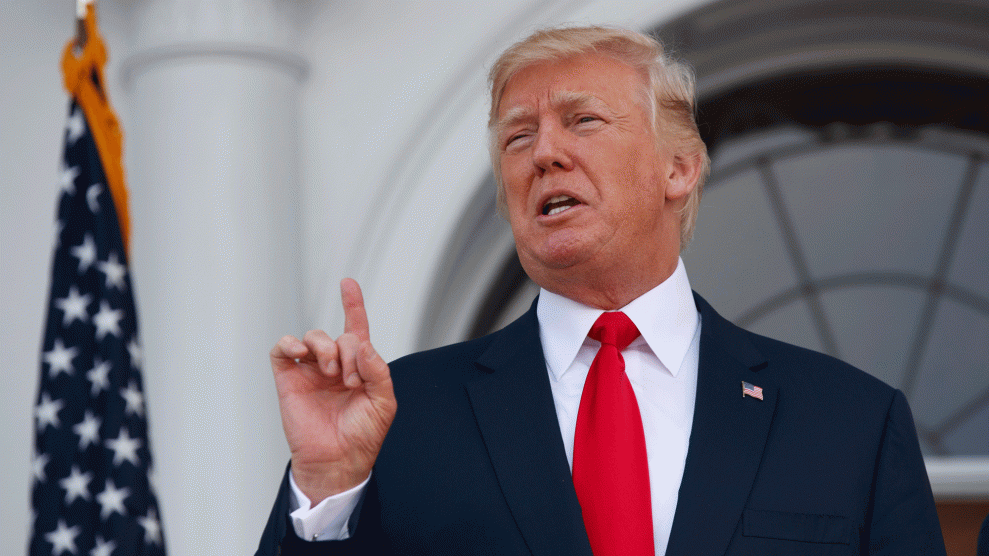
President Trump speaks at the Trump National Golf Club in Bedminster, New Jersey on ThursdayEvan Vucci/AP
On Thursday afternoon, President Donald Trump said his administration was moving towards declaring the opioid epidemic a national emergency, the central recommendation put forward last week by the commission he created to tackle the problem.
Trump’s announcement came two days after Health and Human Services Secretary Tom Price notably declined to say if the administration would trigger a national emergency, a formal designation that would unlock millions of federal disaster funds, and could be used to waive rules that restrict treatment access.
“We’re going to draw it up and we’re going to make it a national emergency,” Trump said during a press briefing at his golf club in Bedminster, New Jersey:
Amid cont'd tough talk on NorKor, Trump declares the opioid crisis a "national emergency," as commission recommended https://t.co/4SAcYwZIp1
— Ali Vitali (@alivitali) August 10, 2017
“We’re going to spend a lot of time, a lot of effort, and a lot of money on the opioid crisis,” he said. “It is a serious problem, the likes of which we’ve never had. You know, when I was growing up, they had the LSD, and they had certain generations of drugs. There’s never been anything like what’s happened to this country over the last four or five years.”
Trump’s decision comes after the president attended a meeting at his New Jersey golf course on Tuesday with the first lady and health officials to discuss the crisis. “The best way to prevent drug addiction and overdose,” Trump said at the time, “is to prevent people from abusing drugs in the first place.” He continued, “If they don’t start, they wont have a problem. If they do start, it’s awfully tough to get off. So if we can keep them from going on and maybe by talking to youth and telling them, ‘No good, really bad for you in every way.’ But if they don’t start, it will never be a problem.”








